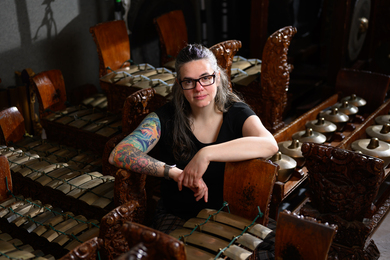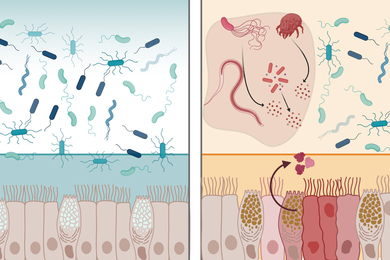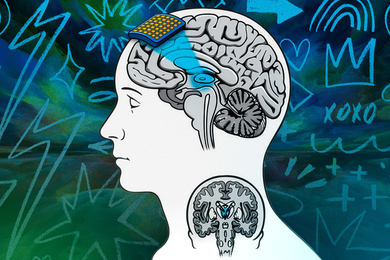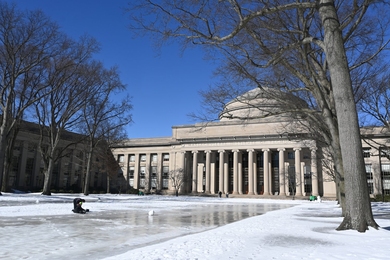MIT ON ER
Professor Bob Langer has been honored with numerous awards for his research, but now he's hit the big time: his work was featured on TV's ER.
In the January 4 episode of the prime-time program, Dr. Mark Green is successfully treated for brain cancer via "chemotherapy wafers" based on Professor Langer's work.
The wafers are the result of research by Professor Langer and colleagues that began in 1979, when he launched a program at MIT specifically to design polymers for medical use. In 1996 the Food and Drug Administration approved the use of the dime-sized wafers for treating brain cancer. The wafers dissolve slowly when placed in the brain, delivering chemotherapy directly to the tumor site.
"I figure this will be great for lectures," said Dr. Langer, the Germeshausen Professor of Chemical and Biomedical Engineering in the Department of Chemical Engineering. "I'll tell students that we finally arrived not when we got the FDA approval, but when the technique appeared on TV," he said with a chuckle.
FUTURE OF TECHNOLOGY
To celebrate the new year, NBC's Today Show invited three visionaries to talk about what the future holds for technology. Professor Michael Dertouzos, director of the Laboratory for Computer Science, kicked off the segment by describing the future of computing.
Among his points: computers will become more "human-centered," or easier for us to interact with, thanks to advances in technologies like speech recognition. When Today co-host Matt Lauer asked whether that means the end of keyboards and mice, however, Professor Dertouzos replied, "Oh, we'll still have them because you have quiet environments, and [when] you want to enter numbers, you want precision. We'll have them, but most of the activity will be done [by] speaking."
The other two visionaries on the January 1 Today Show were Donna Shirley of the Mars Millennium Project and John Taylor of General Motors, who leads the team designing GM's cars of the future.
IN PRAVDA
Stories about MIT appear in media around the world. Nevertheless, it was still a pleasant surprise to receive a story via the News Office's clipping service from Russia's Pravda. The November 25, 2000 piece was about monkeys at Duke that operated a robotic hand at MIT's Touch Lab -- using their brain signals.
A version of this article appeared in MIT Tech Talk on January 24, 2001.





